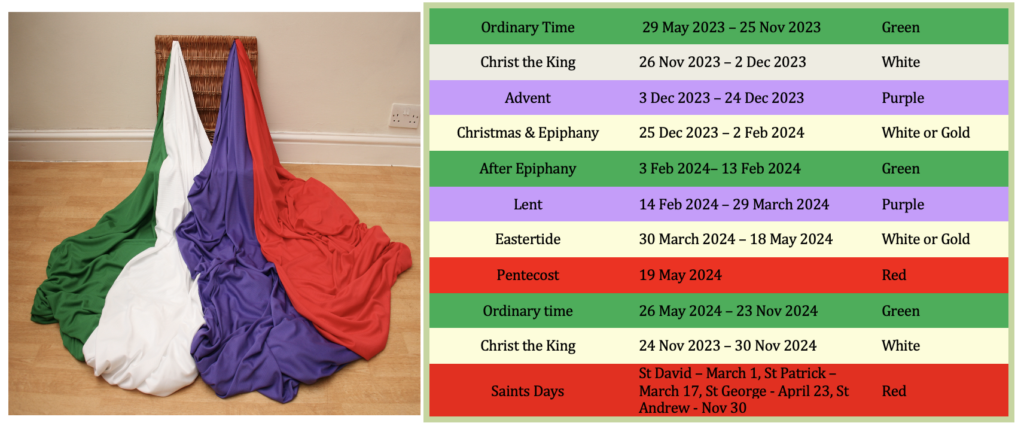Our School as a Church of England School
Church Schools
Church schools have Christian beliefs and values at their heart. This means that every child and adult associated with the school is not just important because they are members of the school but because they are seen as unique individuals within God’s creation.
In Church schools the spiritual aspects of life will be recognised, and nurtured alongside the academic and emotional needs of all.
As a pupil, parent, visitor or member of staff you should find that your church school is as good as any other good school but you should feel that the way the school works is different and distinctive. That distinctive difference will be rooted in Christian values that affect the way everyone is respected.
Church schools are encouraged to:
- ensure that the school is led by a headteacher who is committed, with the help of staff, to establish and maintain the Christian character of the school in its day to day activities and in the curriculum
- engage meaningfully in a real act of Christian worship every day
- offer a school life that incorporates the values of the Christian faith
- ensure that religious education is taught and that the character and quality of religious education are a particular concern of the headteacher and the governing body
- observe the major Christian festivals and in schools which other faiths are present ensure that those faiths are able and encouraged to mark their major festivals with integrity
- maintain and develop an active and affirming relationship with a parish church
Our school as a Church School
Everyone who spends time learning and growing at Micklefield CE Primary Academy, becomes a successful individual with the courage, compassion and creativity to make a difference in the future. We are respectful of God’s world, working together to create a loving and caring community. We live out our school’s Christian ethos through our daily interactions which model our Christian values.
Although we are committed to Christian beliefs and practice, we strive to inform about, and empathise with, all faiths in our world, particularly those represented in school. We promote tolerance, respect and democracy through our teaching of Christian values. All children throughout the school take part in daily Collective Worship, whether in class or as a whole school. Collective worship is an important part of our daily life and enables us to learn about and explore our key Christian values.
Links between Church and School are strong with the clergy leading regular collective worship in school and members of the congregation and clergy serving on the Governing Body. As a school we also regularly visit church for services including Christmas, Easter and school-leavers at the end of the summer term, as well as other major events in the Christian calendar.
The teaching of Religious Education is compulsory, and important to us as a church school. We follow the Leeds Agreed Syllabus. The clergy participate in and support curricular activities in school which are exploring areas of RE and church life, for example baptism. We also use the church building as a resource both in children’s direct learning and in their spiritual, cultural and social development.
We are proud to be an integral part of the St Mary’s Church Community.
We also have close links with the Diocese of York – link to their website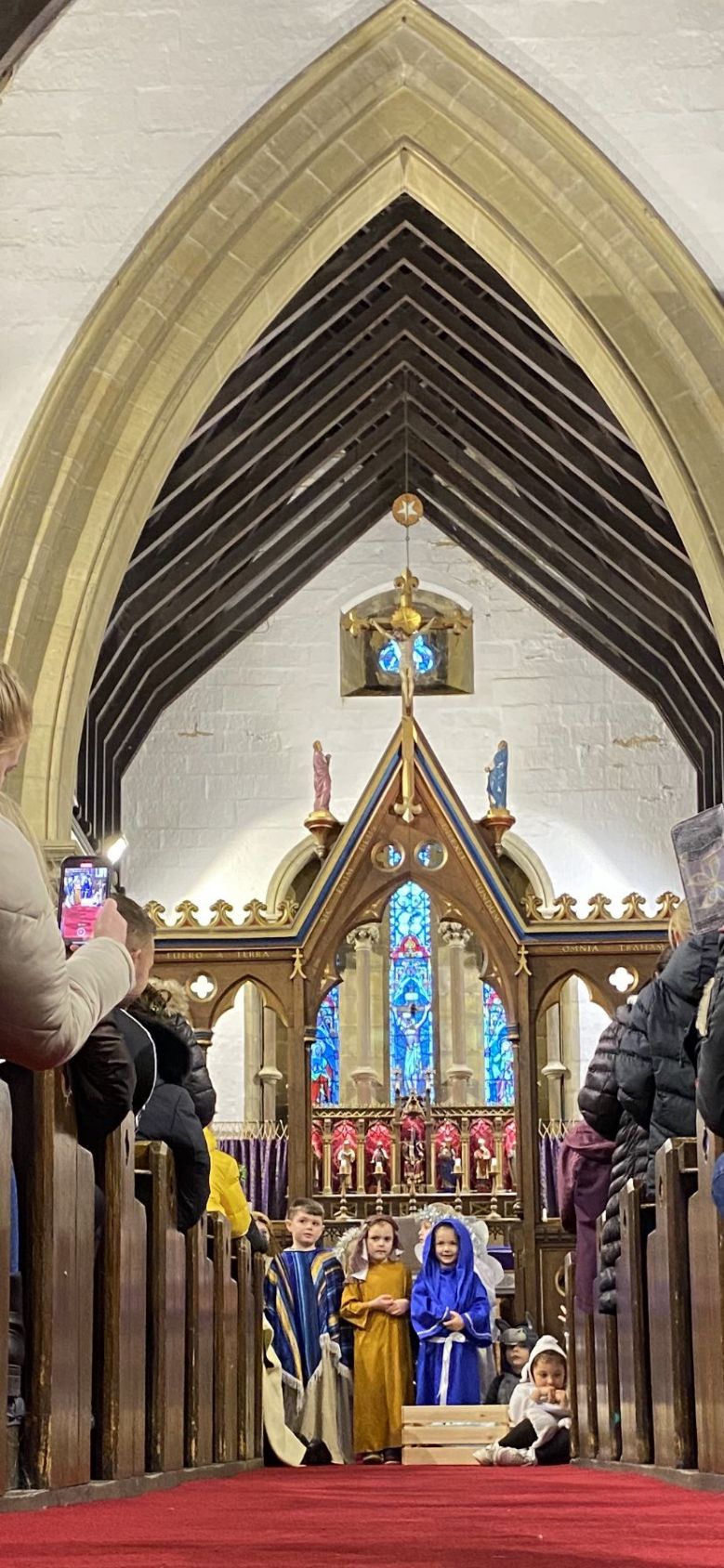
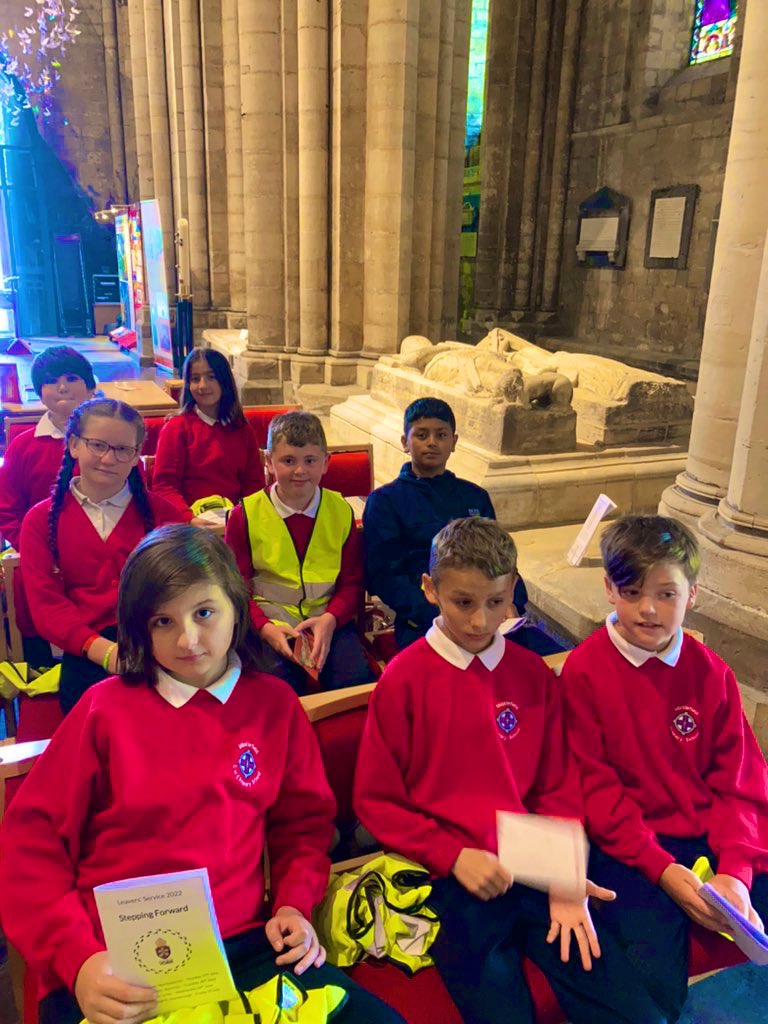
Collective Worship
Our Collective Worship policy strengthens and supports the Christian identity of our school, reaffirms our vision and core values of friendship, respect, community and hope and celebrates the central role that each child has to play in their community. Our worship reflects the variety of traditions found in the Church of England, and will recognise and follow the Christian liturgical year. The daily Christian act of worship is central to our ethos and is supported by all staff and governors. It makes an important contribution to the overall spiritual, moral, social and cultural development of the whole school community.
In our Collective Worship, we:
- Have low lighting and soft music playing to indicate that it is a distinct and special time.
- When we are gathered, we take out the Bible and the cross, light the candles and say the following:
We take out the Bible
and think about God the Father
We take out the cross
and think about God’s son, Jesus
We light the candle
and think about God, the Holy Spirit
Our worship always follows the same structure:
GATHER
ENGAGE
RESPOND
SEND
To end our worship, we say the following:
May God grant to the world justice, truth and peace.
- and make our school a place of happiness and peace.
Our Collective Worship Policy can be found here.
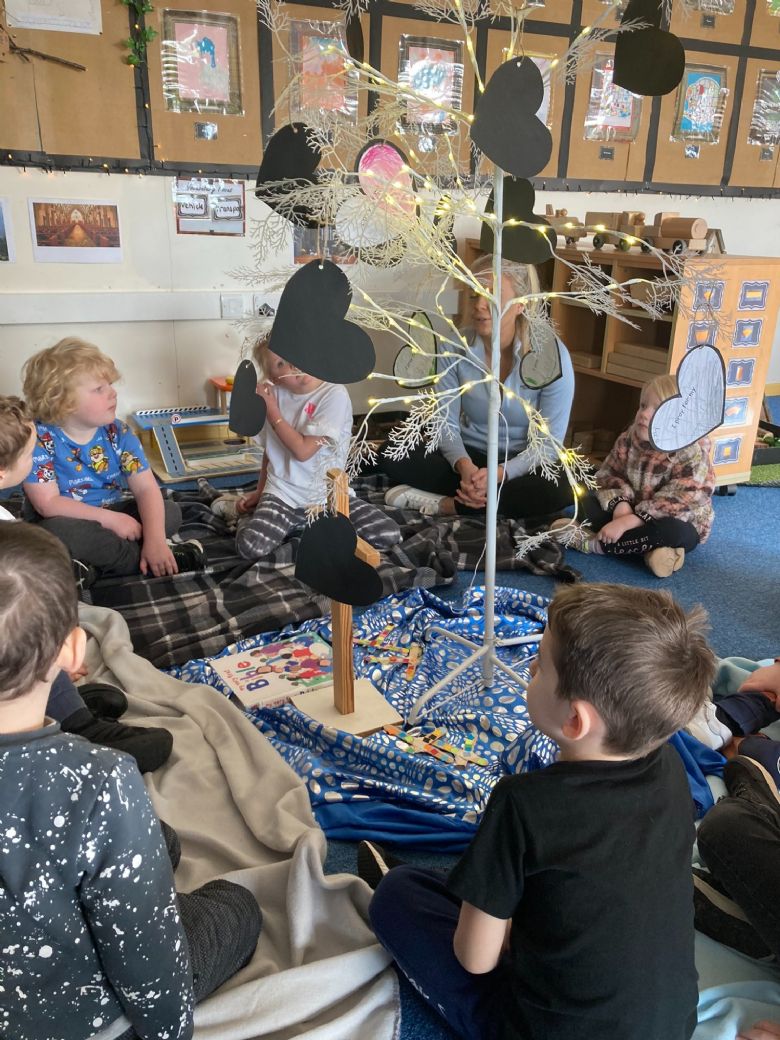
Religious Education
At Micklefield C of E (VC) Primary Academy, pupils and their families can expect a high-quality religious education (RE) curriculum that is rich and varied, enabling learners to acquire a thorough knowledge and understanding of a range of faiths and world views. We teach according to the Diocese of York and Leeds RE syllabus.
As a church school, the teaching of Christianity is at the heart of our RE curriculum we use Understanding Christianity to give our children a coherent understanding of Christian belief and practice. Through the Understanding Christianity resource, the use of an enquiry approach engages with significant theological concepts and the pupil’s own understanding of the world as part of their wider religious, theological and cultural literacy.
Links with our school vision, and support for pupil’s spiritual, moral, social and cultural (SMSC) development are intrinsic to our RE curriculum and have a significant impact on learners. We provide a wide range of opportunities for learners to understand and to make links between the beliefs, practices and value systems of the range of faiths and world views studied.
This policy has taken into account the latest Statement for Entitlement guidance (2019) and the SIAMS Evaluation Schedule (2018 – updated September 2022)
Our RE Policy can be found here.
Our Long Term Plan for RE can be found here.
The Statement for Entitlement can be found here.
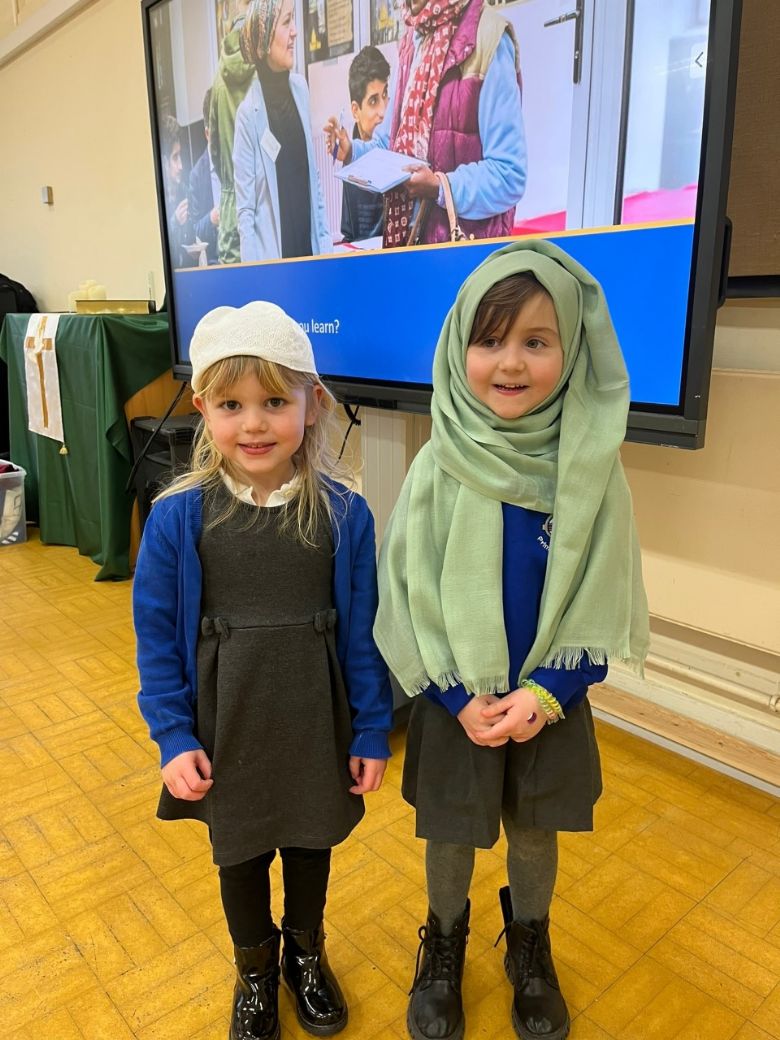
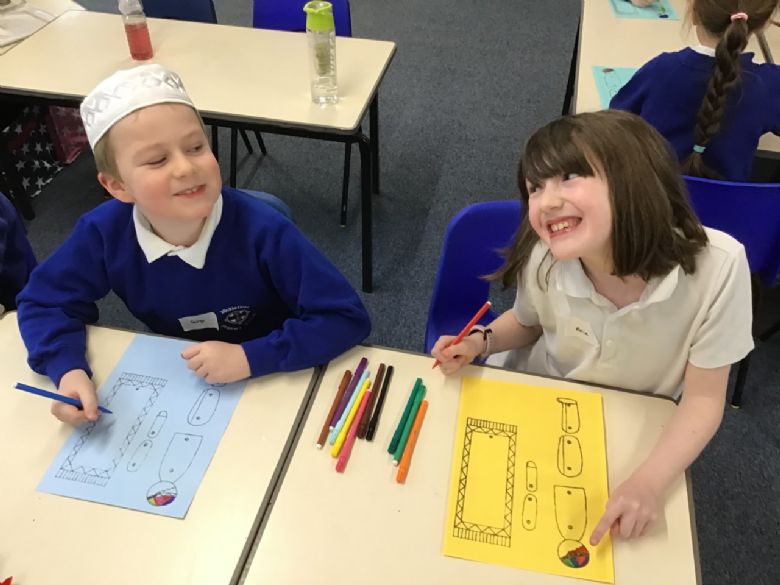
Ethos Committee
Our Ethos Committee meets regularly to think about and develop how we show that we are a church school in everything we do – from collective worship to how we treat each other day by day. Representatives from each class are elected to be members of our Ethos Committee. They meet to consult on the worship provision across school and to assist in the delivery of collective worship.

Courageous advocacy
Courageous advocacy refers to the act of speaking out against an issue of injustice, often on behalf of those whose voice is not heard. Speaking out, at whatever level this takes place, requires an element (and sometimes a great deal) of courage!
At Micklefield Church of England Primary Academy, we have a strong emphasis on encouraging our pupils to become courageous advocates, not just locally, but nationally and globally.
At some point in life we will all face challenges and need support to help us overcome these barriers. We teach our children that it is important to help others when we can, no matter who they are, where they come from or what challenges they may face. We teach this through the teachings of the bible and learning about other courageous advocates. Our Christian values and carefully planned opportunities in our curriculum ensure that the children regularly discuss and debate the big issues, to challenge injustice and to engage in activities that can bring about change are always present.
“Speak up for those who cannot speak for themselves, for the rights of all who are destitute. Speak up and judge fairly; defend the rights of the poor and needy.”
Proverbs 31:8-9
We support a range of charities in our local area, nationally and globally. Children in school work with staff, governors, parents, pupils and St. Mary's Church to identify worthy causes to support.
We have carried out a range of different fund-raising to support many good causes, some of which include:
- Selby Food Bank
- Comic Relief;
- Children in Need;
- The Royal British Legion Poppy Appeal;
- NSPCC
- Ukraine charities
- Christian Aid
- The Children's Society
Our school community and curriculum actively embraces a responsibility for the world in which we live. We are diligent to show our connection with, and care for, the world in which we all live and care for the people who live in it:
- Links with the local community centre (Valentine's Day activities; Christmas carols)
- Charities of significance to our children;
- Developing links with schools to learn about the similarities, differences & how we can help support/develop each other through these:
- A strong PTA with events such as Christmas Raffles, discos and film nights;
- School advertises and supports local events;
- The Head Teacher writes in the local Parish newsletter to reach out to the community;
- Christmas cards sent to households in the village.
Examples of courageous advocacy by members of our school community:
- Georgie made poppies at home to sell to support The Royal British Legion Poppy Appeal
- Simmy made yellow and blue cupcakes to sell in school to support children in Ukraine
- Miss Orr shaved her head to raise money for Macmillan Nurses
- Year 6s wrote to the our local MP urging him to do more for Climate Change so that the Earth is still there for future generations
You can find out more about Courageous Advocacy here.


Seasons of The Church Year
During Worship time we use coloured cloths, appropriate to the season of the church year, to create the sacred space for worship. But which colour and when?
The church calendar is made up of seasons that follow the life of Jesus. The church year begins in late November or early December with Advent, a time of preparation for Jesus’ birth. In Christian churches one of four colours – purple, green, gold (or white) and red – referred to as ‘liturgical colours’, are used for altar linen, clergy robes and various hangings. The colour reflects the season, so that for instance in Advent purple is used, a colour of royalty because we are preparing to welcome the coming of a king. Purple is used again in Lent because it also symbolises suffering and pain.At Christmas and Easter the colour changes to white or gold, both bright optimistic colours for festivals, times for joy and celebration. Between the festivals green cloths symbolise all living things, renewal and promise of new life. And finally, red is the colour of fire, used in churches to celebrate Pentecost and saints’ days.
